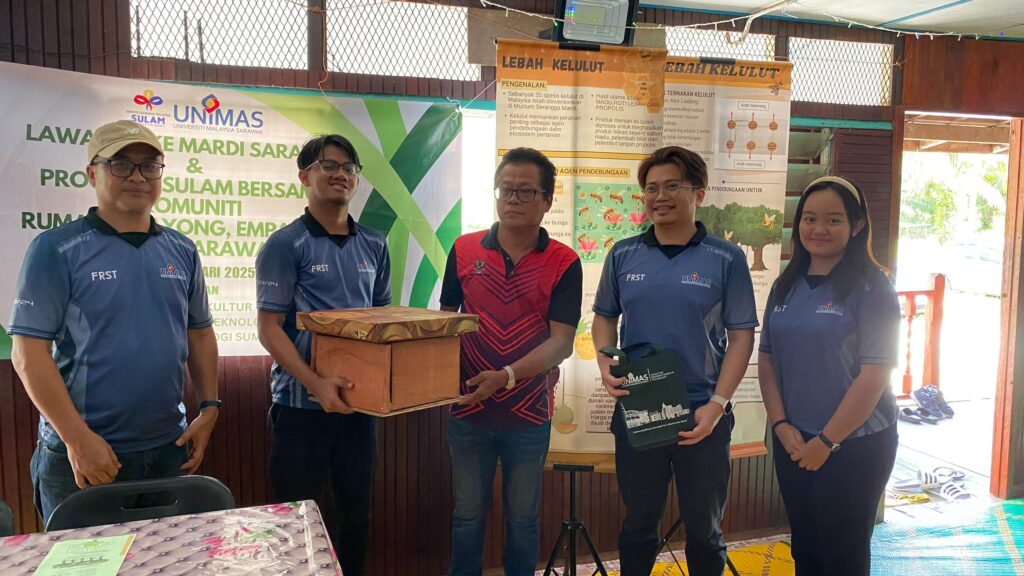
Saratok, 17 January – Students from the Agrotechnology Programme, Faculty of Resource Science and Technology (FRST), Universiti Malaysia Sarawak (UNIMAS), bridged knowledge and community needs through the SULAM Program. As part of their meaningful journey to the longhouse Empait Ulu Roban, Saratok, under the Service Learning Malaysia-University for Society (SULAM) initiative and the STG3223 Apiculture course, the program aimed to foster practical knowledge application while addressing community needs, particularly through the innovative design and implementation of a Lebah Kelulut (stingless bee) house to benefit the local community.
Beforehand, the students designed and created a sustainable Kelulut house to improve honey production while promoting environmental conservation. Guided by their lecturers and a research officer from MARDI Saratok, the students applied their knowledge of apiculture and agrotechnology to construct the Kelulut house, ensuring its practicality and adaptability for the community’s use. This effort aligns with UNIMAS’s mission to empower rural communities through innovation and sustainable agricultural practices.
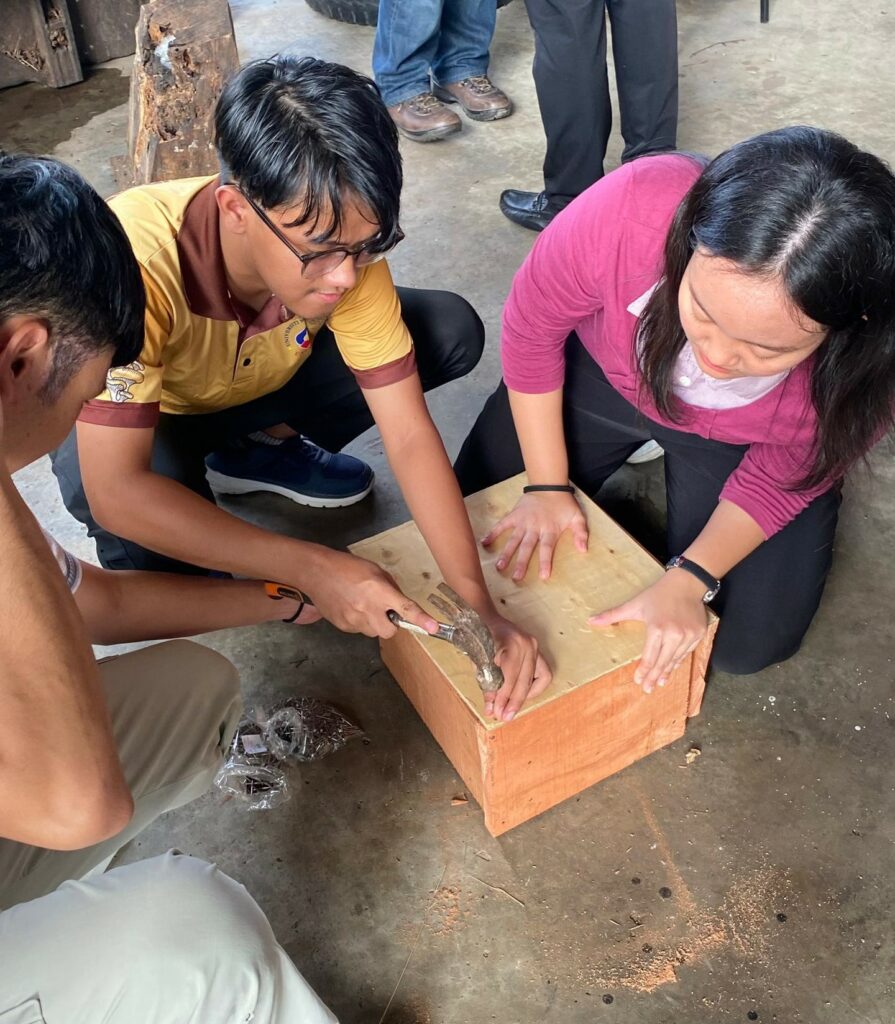
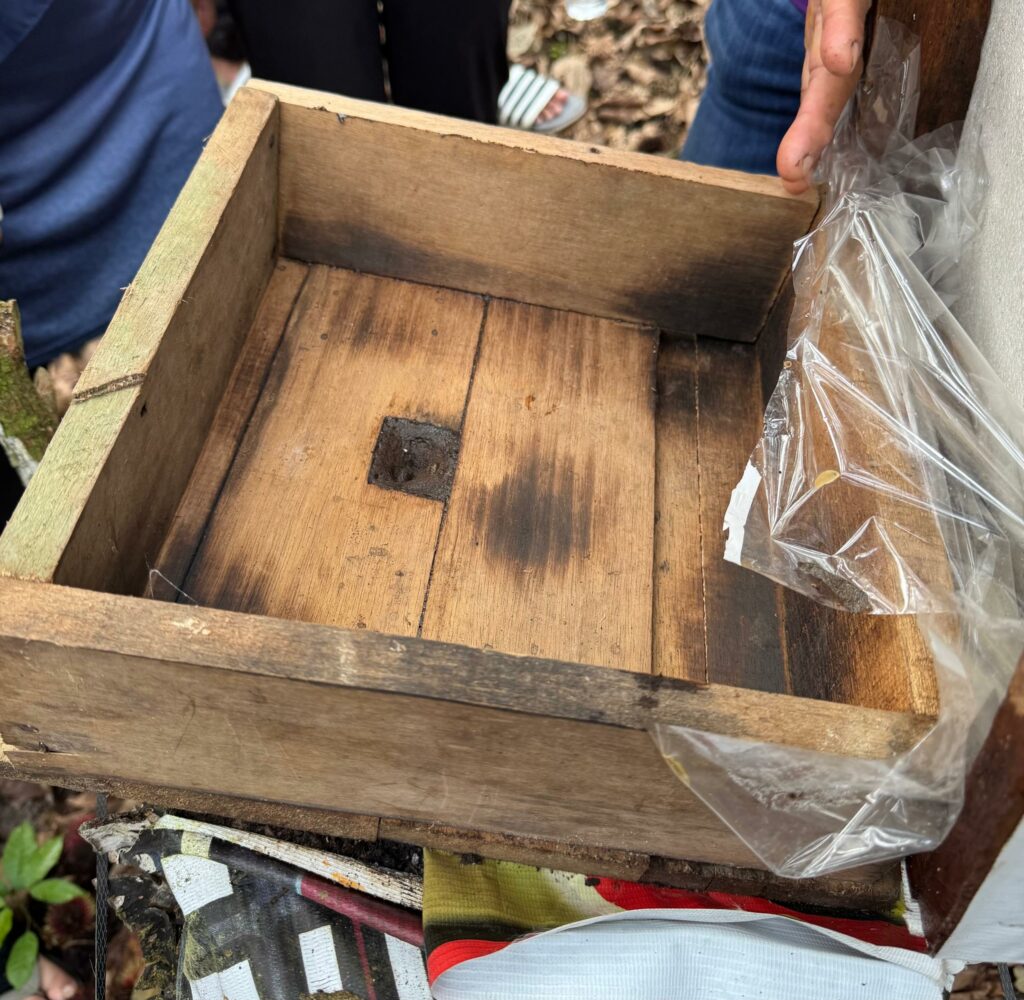
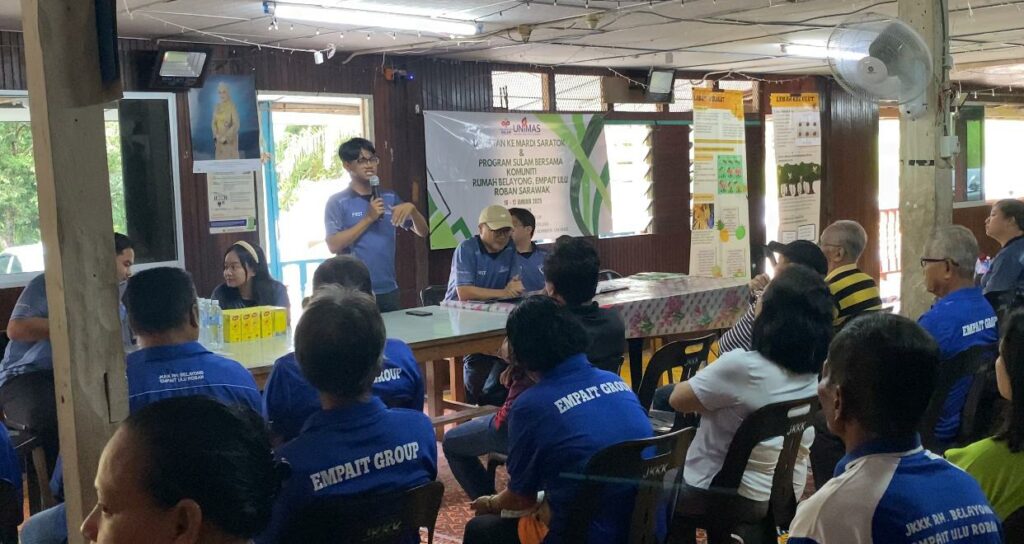
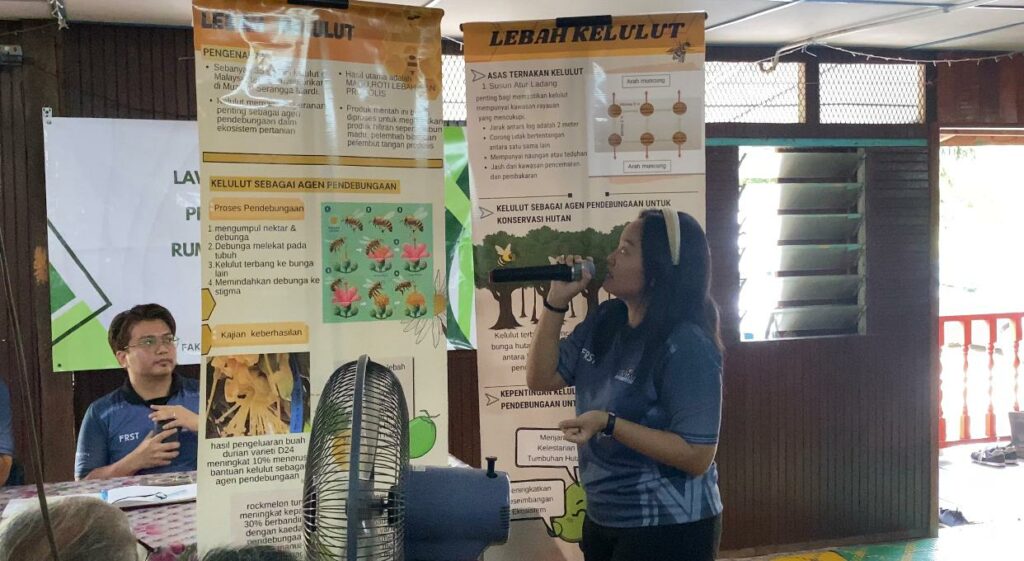
Kelulut honey, prized for its medicinal and economic value, holds significant potential as a supplementary source of income for the residents of the Empait Ulu Roban longhouse. By introducing improved beekeeping techniques and structures, the students not only enhanced productivity but also fostered a sense of ownership and pride within the community.
The SULAM program fosters a two-way exchange of knowledge and skills between universities and local communities. For the students, this initiative served as a platform to apply classroom theories to real-world scenarios, developing their problem-solving and collaboration skills. For the Empait Ulu Roban longhouse community, the project introduced sustainable solutions to enhance livelihoods while preserving the environment. Additionally, the students conducted talks on the importance of Kelulut bees as pollination agents, which are vital for conserving flowering plants and maintaining biodiversity within the ecosystem.
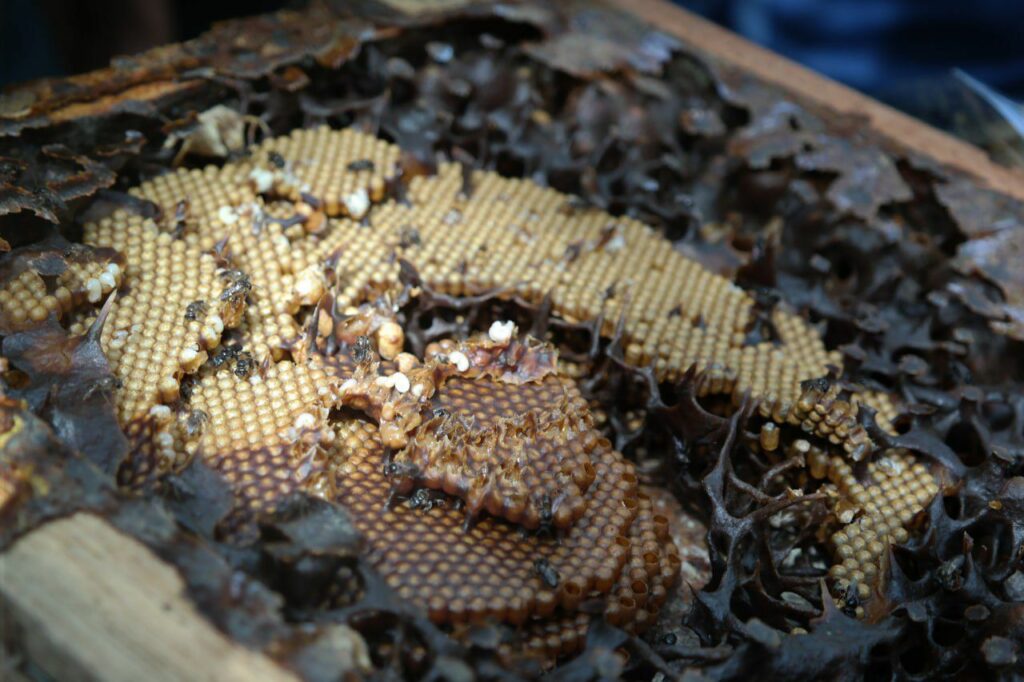
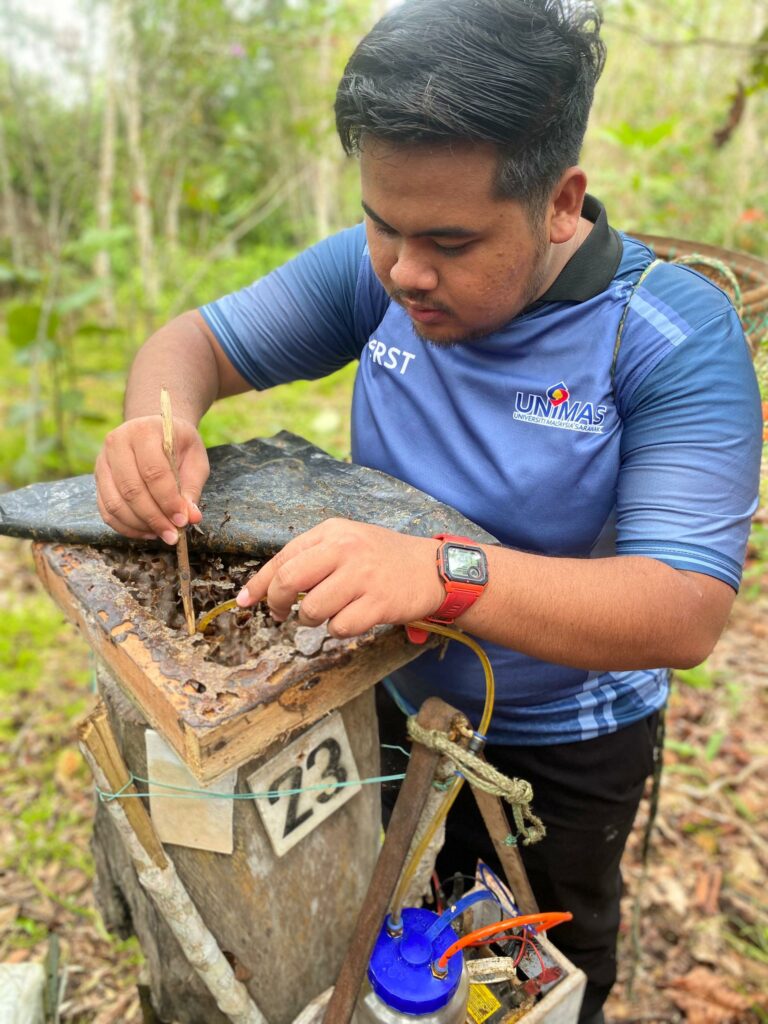
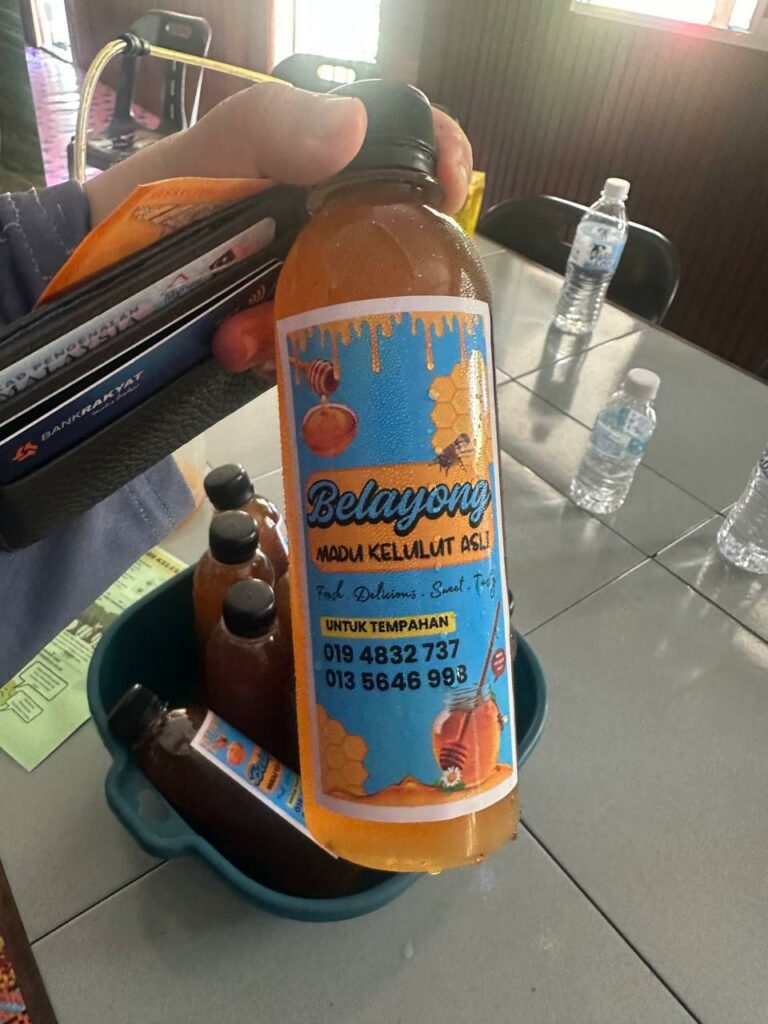
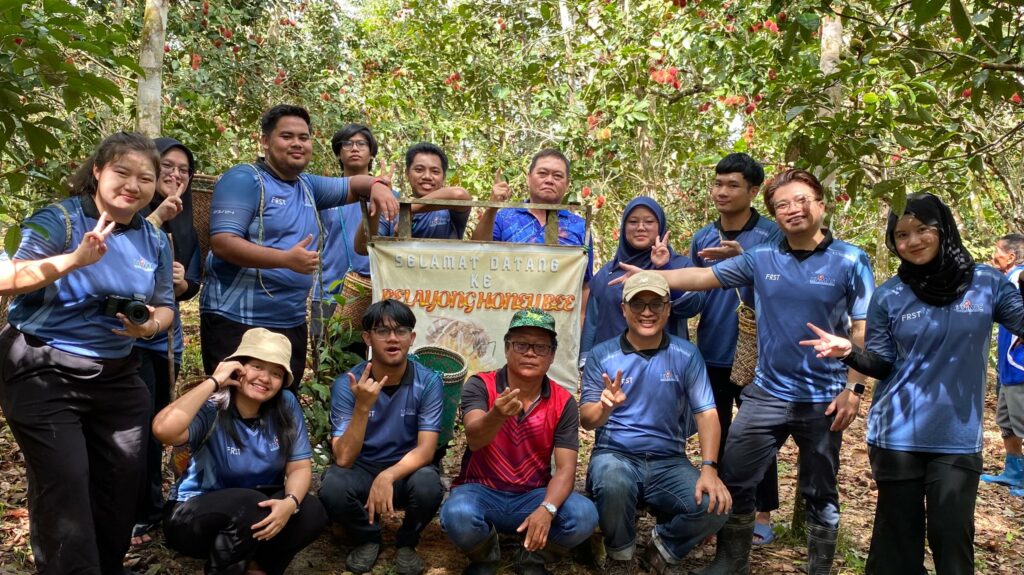
The success of this program highlights the importance of integrating community engagement into academic curricula. Through SULAM projects like this, students gain valuable hands-on experience while contributing to the well-being of local communities. UNIMAS aims to expand similar initiatives in the future, reinforcing its commitment to nurturing responsible graduates and fostering sustainable rural development.
Prepared by: Dr Walftor Dumin & Dr Bernard Maringgal